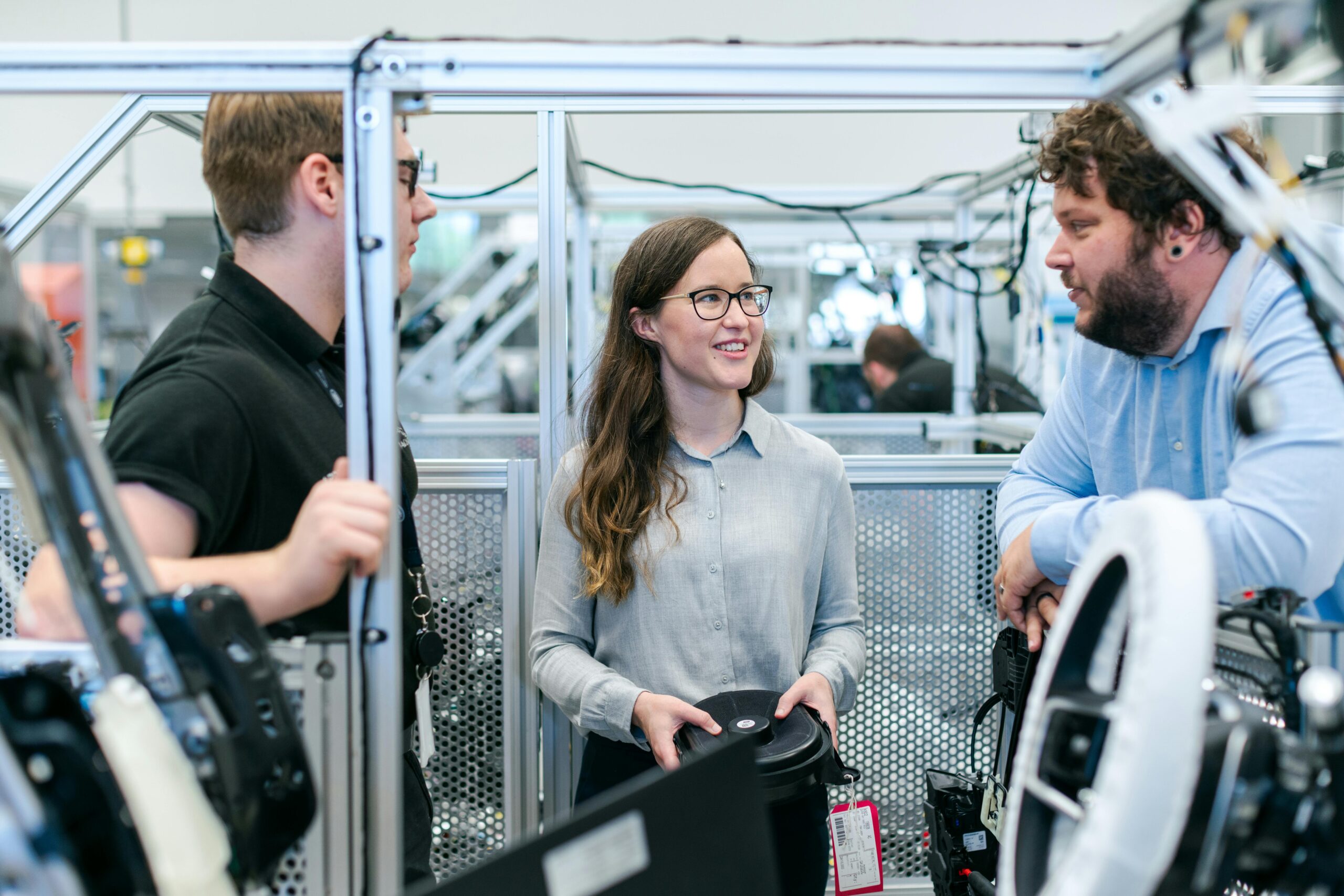A 5 min read
In today’s rapidly evolving world, maintaining consistency is a critical challenge across industries and sectors. Whether in decision-making, product quality, or customer service, organizations strive to deliver uniform experiences and outcomes. This is where artificial intelligence (AI) plays a pivotal role. AI’s ability to uphold consistency, streamline processes, and mitigate human error has made it a vital tool in modern business operations. By examining how AI supports consistency across different use cases, we can gain insight into its transformative potential.
Defining Consistency in Business
Consistency, in a broad sense, refers to uniformity in behavior, processes, and outcomes over
time. It ensures that results are predictable and adhere to established standards. Whether it’s the experience of ordering food online, accessing customer support, or analyzing financial data, businesses need to provide a uniform experience to build trust and meet expectations. Human limitations,
such as cognitive biases, fatigue, and external distractions, can interfere with this, resulting in inconsistencies. AI, by contrast, can maintain a level of precision and reliability that mitigates these challenges.
AI in Decision-Making: A Catalyst for Reliable Outcomes
One of the primary applications of AI is in decision-making, particularly in environments where
data is abundant and must be consistently interpreted. AI algorithms are built to evaluate vast datasets with precision, adhering to predefined rules and protocols. This removes subjective human interpretation from decision-making, which can often introduce bias and lead to inconsistent results.
For example, in the financial sector, credit scoring systems traditionally relied on human
assessment, leaving room for potential bias or error. Today, AI-powered credit scoring models ensure that every applicant is evaluated using the same set of criteria, resulting in fairer and more consistent outcomes. These AI-driven decisions not only lead to better risk management but also foster trust among customers, who are confident that decisions are made based on reliable, objective criteria.
AI in Manufacturing: Ensuring Product Quality
In industries such as manufacturing, consistency in product quality is critical. Variations in product dimensions, weight, or material composition can lead to costly defects and dissatisfied customers. Human oversight in manufacturing, though essential, can result in inconsistencies due to fatigue or subjective judgment.
AI-powered systems excel in maintaining strict quality control. For instance, machine vision technology, powered by AI, is widely used to inspect products on the production line. This technology can detect even the smallest deviations from the desired product specifications, ensuring that each item meets the same rigorous quality standards. Unlike humans, AI systems do not tire or lose focus, ensuring that inspections are consistently thorough.
Moreover, predictive maintenance, another AI application, ensures that machinery operates at optimal efficiency by identifying issues before they lead to costly breakdowns. By collecting and analyzing data from sensors in real time, AI can predict when equipment might fail and schedule maintenance accordingly, preventing disruptions and maintaining consistent production.

Customer Service Consistency Through AI
Consistency in customer service is another area where AI plays an invaluable role. In traditional customer service setups, customer interactions can vary significantly depending on the mood, experience, or knowledge of the representative. However, with the rise of AI-driven chatbots and virtual assistants, companies can now deliver a consistent level of service 24/7, regardless of the complexity of the request or the time of day.
Chatbots are programmed to handle a wide range of queries, providing fast, accurate responses to customers. They are unaffected by external factors that could impair human agents, such as fatigue or workload. Furthermore, AI systems are continuously learning, improving their responses based on past interactions. This ensures that customers receive consistent, up-to-date information whenever they reach out for support.
AI can also support human customer service agents by providing them with relevant information and
suggestions in real-time, enhancing the quality of interactions. By ensuring that customer service is consistent across all channels—whether it's via chat, phone, or email—AI helps build customer trust and loyalty.

AI in Healthcare: Reducing Variability in Diagnoses
In healthcare, the consistency and accuracy of diagnoses are paramount. Yet, human factors such as
varying levels of expertise, stress, or even working hours can contribute to diagnostic variability. AI’s ability to process large volumes of medical data and provide insights based on standardized criteria can significantly reduce these inconsistencies.
For instance, AI systems in radiology analyze medical images such as X-rays, MRIs, and CT scans
to detect anomalies with a high degree of precision. These systems are trained on extensive datasets, enabling them to spot patterns that may be missed by human eyes. Since AI applies the same rigorous analysis to each image, the risk of oversight or misdiagnosis due to human error is minimized, leading to more consistent and reliable diagnoses.
Moreover, AI-powered clinical decision support systems provide healthcare professionals with
evidence-based treatment recommendations, ensuring that patients with similar conditions receive standardized, high-quality care. This consistency in care reduces variability and helps to improve patient outcomes.

Maintaining Ethical Consistency with AI
One of the concerns often raised with AI is whether it can uphold ethical standards consistently.
Algorithms are designed based on the data they are trained on, and if the training data is biased, the AI can produce skewed results. However, modern AI systems are designed with checks and balances to minimize this risk. Ethical AI frameworks focus on ensuring fairness, transparency, and accountability in
decision-making processes.
For example, AI models used in recruitment help eliminate bias in the hiring process by evaluating
candidates based solely on objective criteria such as skills and experience. This helps organizations avoid unintentional discrimination and maintain ethical consistency in hiring practices. As these models evolve, AI's potential to uphold ethical standards consistently will continue to improve, creating
fairer, more inclusive systems across industries. You can also sue AI Agents to gather data, including recruitment, checkout https://verkko.ai for AI Agent solutions.
Conclusion
AI is essential for maintaining consistency across industries, from decision-making to quality control and healthcare. By mitigating human error and ensuring systems follow set standards, AI enables reliable, efficient outcomes, transforming business operations. Checkout Qvantia's Products to find the right solution for you https://qvantia.com/products/
Speak to Qvantia today, we would be very happy to help - info@qvantia.com
Qvantia - AI Insights

